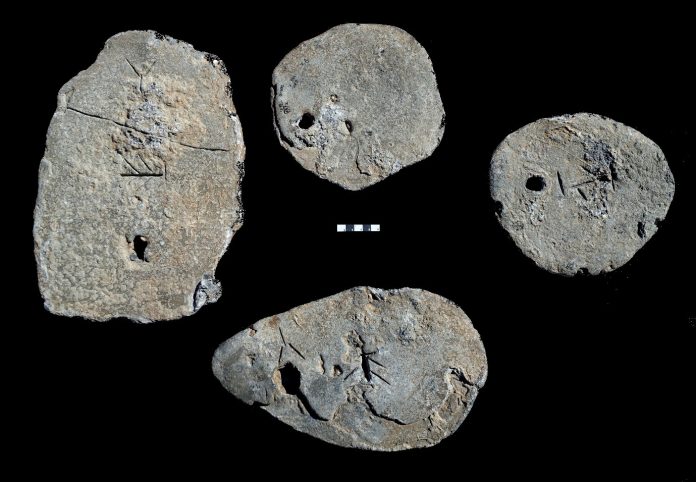Proves Significant Trading Links in Mediterranean Basin
Jerusalem, 21 February, 2022 (TPS) — The Late Bronze Age of the Mediterranean Sea basin is known as an era characterized by complex supra-regional relations and diplomacy, with trade and exchange of gifts being common practices.
Newly discovered lead ingots and stone anchors found among shipwrecked cargo off the coast of Israel reveal previously unknown trading links among distant countries, shedding light on commercial and diplomatic life in the area from 3,200 years ago.
Hebrew University of Jerusalem (HU)’s Institute of Archaeology Professor Naama Yahalom-Mack collaborated with Professor Yigal Erel at HU’s Institute of Earth Sciences to determine the source of four lead ingots among a shipwreck’s cargo near the port of Caesarea. By studying the source of the lead and comparing their findings to other archeological artifacts from across the Mediterranean Sea, the researchers were able to prove that the ingots were made of lead mined in the central Mediterranean island of Sardinia.
Furthermore, the ingots were incised with Cypro-Minoan markings which, though undeciphered to this day, are known to have been in use in Cyprus during the Late Bronze Age.
Accordingly, the researchers concluded that there were vast commercial ties between the two populations with the purpose of transporting raw material.
Yahalom-Mack explained that this study teaches us about the active role that the Cypriots had in trade during the same era, and how far they were willing to go, given that Cyprus and Sardinia are located more than 2,500 km (1550 miles) from one another, in order to import lead, used to create luxury goods at the end of the era.
“We think that along with lead, they also imported tin — a sought-after metal in Cyprus and the surrounding area for making bronze. These three metals — copper, lead, and tin — were sold to port cities along the coastlines, including the shores of today’s Israel,” she added.






